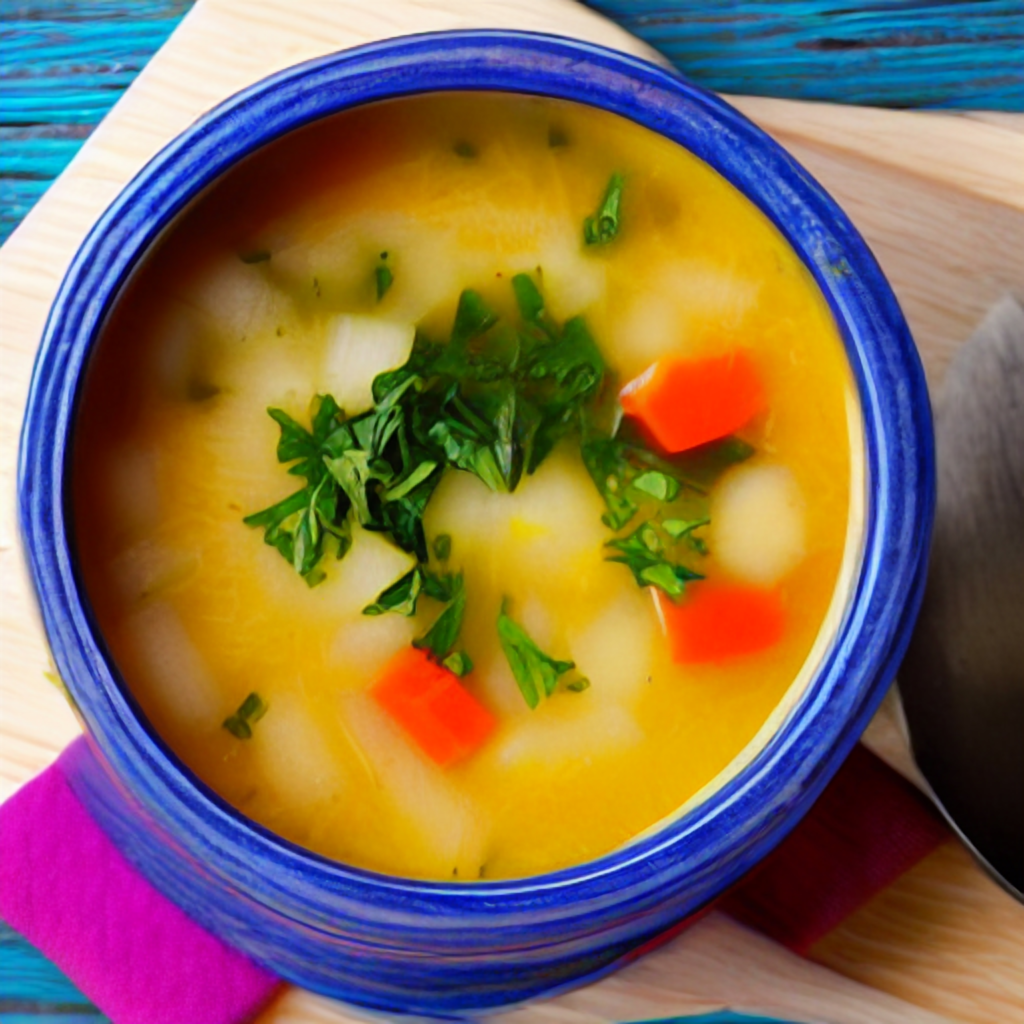The Ultimate Guide to the Soup Diet: Achieve Your Weight Loss Goals
Introduction
Welcome to our comprehensive guide on the Soup Diet, an effective and healthy approach to achieving your weight loss goals. At [Our Company Name], we believe that quality content combined with strategic optimization techniques can help your website outrank others. In this article, we will delve into the ins and outs of the Soup Diet, providing you with in-depth information to assist you on your weight loss journey.
Understanding the Soup Diet
The Soup Diet, also known as the Cabbage Soup Diet, is a short-term weight loss program that involves consuming low-calorie soups over a period of seven days. This diet plan gained popularity due to its simplicity and promise of quick results. While it is essential to note that individual results may vary, the Soup Diet can serve as a kick-start to a healthier lifestyle.
How Does the Soup Diet Work?
The Soup Diet primarily focuses on consuming homemade vegetable-based soups with limited calories and fat content. The low-calorie nature of the soups allows for a reduced overall calorie intake, which can lead to weight loss. It is important to consult with a healthcare professional or nutritionist before embarking on any diet plan, including the Soup Diet.
The Benefits of the Soup Diet
- Weight Loss: The Soup Diet can provide a jumpstart to your weight loss journey by reducing calorie intake and promoting portion control.
- Nutrient-Rich: Homemade vegetable soups can be packed with essential nutrients, vitamins, and minerals, contributing to a balanced diet.
- Hydration: Soups often contain a high water content, aiding in hydration and promoting a feeling of fullness.
- Variety: The Soup Diet offers flexibility in terms of soup recipes, allowing you to explore different flavors and textures while maintaining a low-calorie intake.
Planning Your Soup Diet Journey
Before embarking on the Soup Diet, it is crucial to have a well-thought-out plan to maximize its effectiveness. Here’s a step-by-step guide to help you get started:
Step 1: Consult a Healthcare Professional
Before starting any diet or weight loss program, it is essential to consult with a healthcare professional or registered dietitian. They can assess your individual needs, health conditions, and provide personalized guidance to ensure the Soup Diet is suitable for you.
Step 2: Research and Choose Soup Recipes
To keep your Soup Diet journey interesting and enjoyable, explore a variety of soup recipes. Look for options that include a wide range of vegetables, herbs, and spices to add flavor and nutrition to your meals. Here are a few popular soup recipes to consider:
- Garden Vegetable Soup
- Spicy Lentil Soup
- Tomato Basil Soup
- Minestrone Soup
- Butternut Squash Soup
Remember to prioritize recipes that align with your taste preferences and dietary requirements.
Step 3: Grocery Shopping and Meal Preparation
Once you have chosen your soup recipes, create a comprehensive grocery list. Include all the necessary ingredients to avoid last-minute shopping trips. Focus on fresh, organic produce to maximize nutritional benefits. Set aside a dedicated time for meal preparation to ensure you have ample supply throughout the week.
Step 4: Portion Control and Calorie Awareness
While the Soup Diet promotes weight loss, it is crucial to maintain portion control and calorie awareness. Monitor your daily calorie intake to ensure you stay within a healthy range. Be mindful of portion sizes and avoid overconsumption.
Incorporating Exercise into Your Routine
To enhance the effectiveness of the Soup Diet and promote overall well-being, incorporating exercise into your routine is highly recommended. Engaging in physical activities can help burn additional calories, build muscle, and improve cardiovascular health. Consider the following exercises:
1
Incorporating Exercise into Your Routine (Continued)
- Cardiovascular Exercises: Engage in activities such as brisk walking, jogging, cycling, swimming, or dancing to increase your heart rate and burn calories. Aim for at least 150 minutes of moderate-intensity cardio exercises per week.
- Strength Training: Include resistance exercises such as weightlifting or bodyweight exercises to build muscle and boost your metabolism. Focus on all major muscle groups, performing two to three strength training sessions per week.
- Yoga or Pilates: Incorporate flexibility and core-strengthening exercises into your routine with practices like yoga or Pilates. These activities can improve posture, balance, and overall body strength.
- Active Lifestyle: Make small changes to incorporate physical activity into your daily routine. Take the stairs instead of the elevator, walk or bike to nearby destinations, or participate in recreational sports.
Remember to listen to your body, start gradually, and consult with a fitness professional if you have any underlying health concerns or limitations.
Staying Hydrated and Mindful Eating
Hydration and mindful eating play vital roles in any weight loss journey, including the Soup Diet. Here are some key points to keep in mind:
Hydration
Drinking an adequate amount of water is essential for overall health and weight management. Proper hydration supports digestion, regulates body temperature, and helps control appetite. Aim to drink at least eight glasses (64 ounces) of water per day. You can also include herbal teas or infused water for added flavor.
Mindful Eating
Practice mindful eating to develop a healthy relationship with food and maintain portion control. Here are some tips to incorporate mindfulness into your meals:
- Savor each bite: Pay attention to the flavors, textures, and sensations of the food you eat. Take your time and enjoy every bite.
- Eat without distractions: Avoid eating in front of screens or while engaged in other activities. Instead, focus solely on your meal.
- Listen to your body: Pay attention to your body’s hunger and fullness cues. Stop eating when you feel comfortably satisfied, rather than overly full.
- Engage your senses: Appreciate the aroma, colors, and presentation of your meals. Engaging your senses can enhance the enjoyment of your food.
Maintaining a Balanced Lifestyle
While the Soup Diet can provide a jumpstart to your weight loss journey, it is crucial to maintain a balanced lifestyle for long-term success. Here are a few additional tips:
- Gradual Transition: After completing the Soup Diet, gradually reintroduce other nutritious foods into your diet while maintaining portion control. Focus on whole grains, lean proteins, fruits, vegetables, and healthy fats.
- Regular Meal Times: Establish regular meal times and avoid skipping meals. This can help regulate your metabolism and prevent excessive hunger that may lead to overeating.
- Quality Sleep: Ensure you get sufficient sleep each night. Aim for seven to nine hours of uninterrupted sleep to support overall health, hormonal balance, and weight management.
- Stress Management: Practice stress-reducing techniques such as meditation, deep breathing exercises, or engaging in hobbies you enjoy. Chronic stress can affect weight management and overall well-being.
Conclusion
The Soup Diet, when executed with careful planning and in consultation with healthcare professionals, can be a useful tool for jumpstarting your weight loss journey. Remember, sustainable weight loss is a result of long-term lifestyle changes, including a balanced diet, regular exercise, hydration, mindful eating, and overall self-care. By incorporating these principles into your routine, you can achieve your weight loss goals and maintain a healthier lifestyle for years to come.

